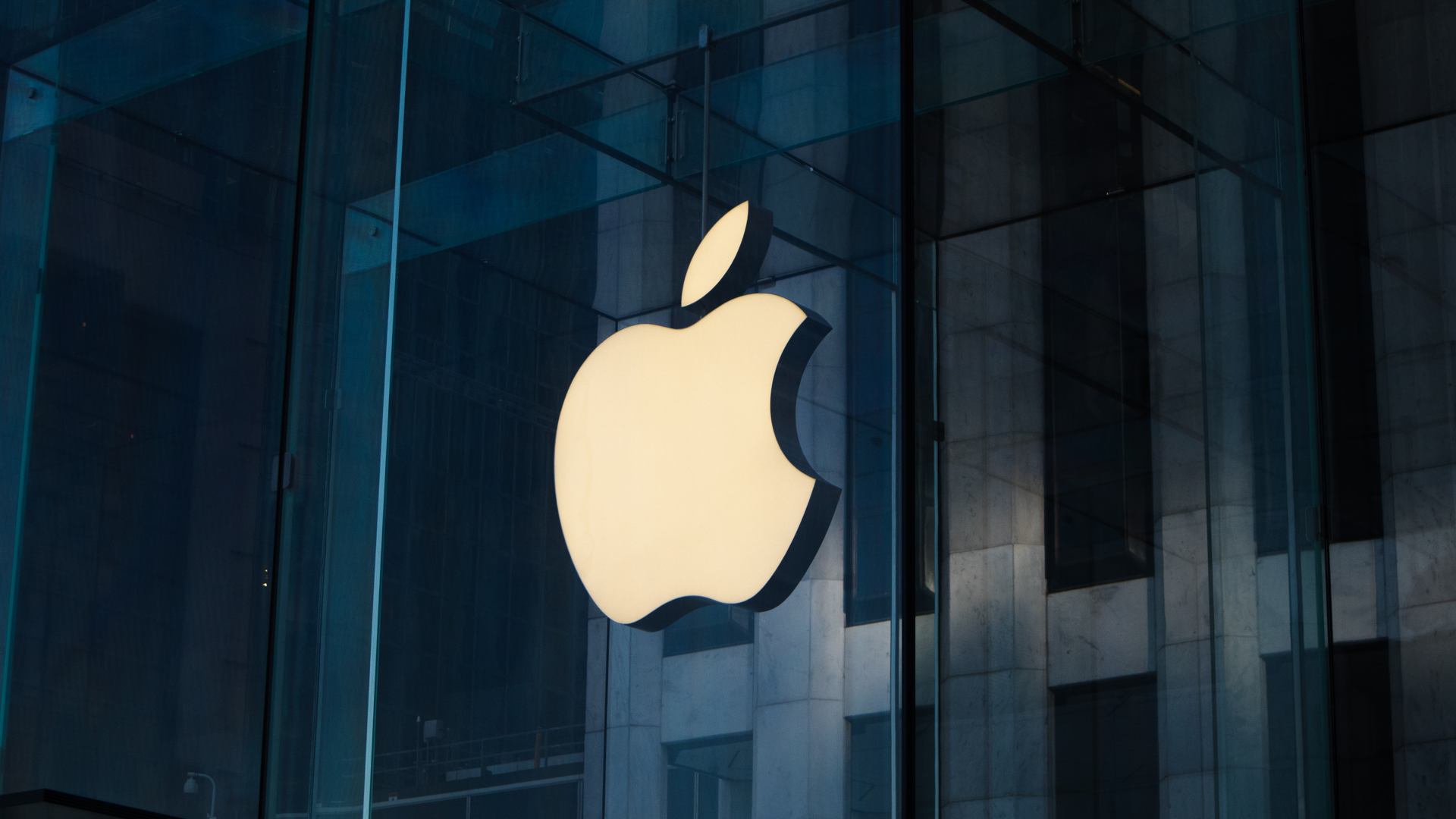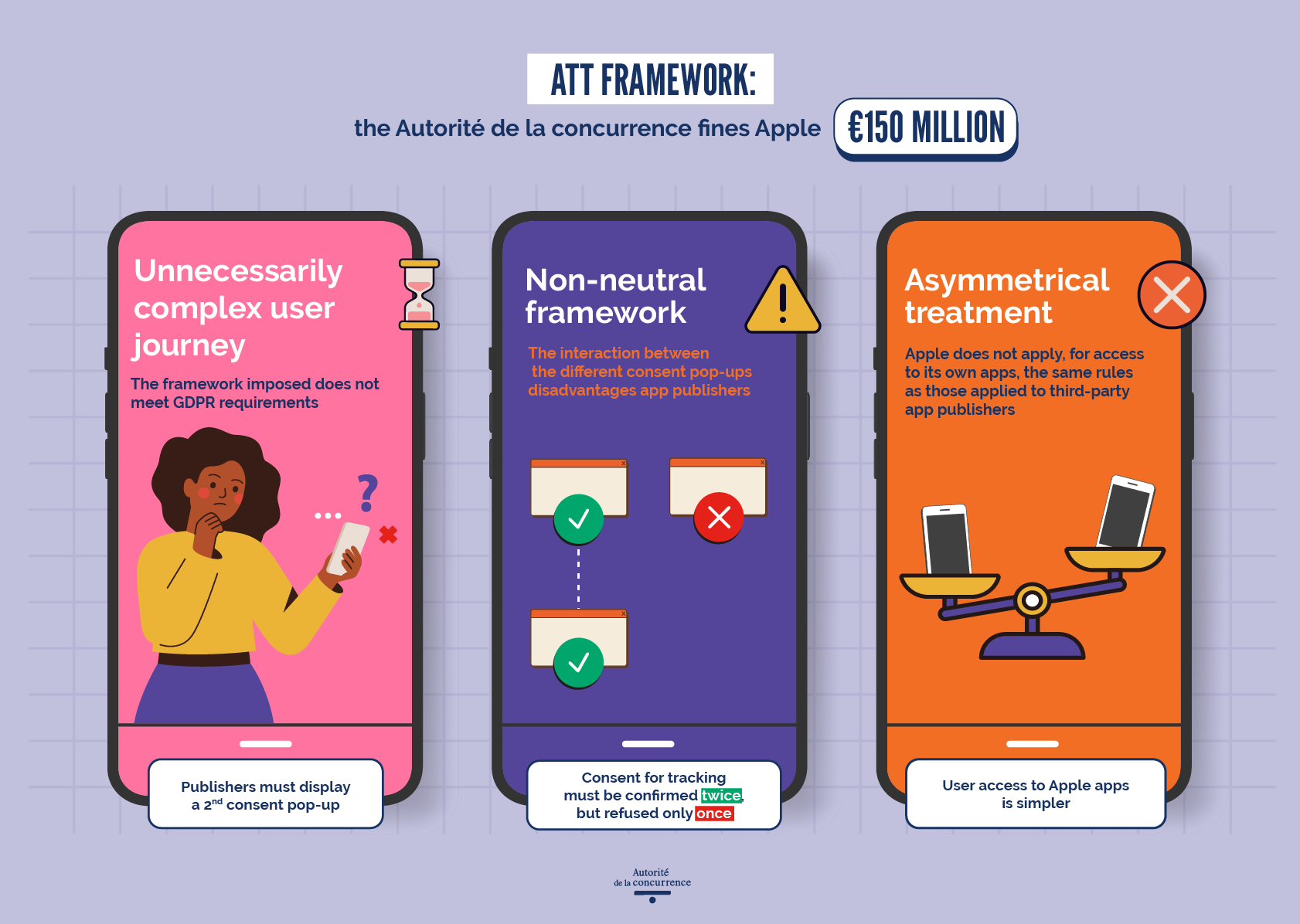Apple fined over €150 million in France for discriminatory consent practices surrounding its ATT framework
France's antitrust watchdog found Apple's ATT framework penalized third-party apps

- Apple was hit with an over €150 million fine in France on Monday, March 31, 2025
- France's antitrust watchdog found Apple's App Tracking Transparency (ATT) framework "neither necessary nor proportionate"
- Apple launched ATT in April 2021 to help users manage apps' data tracking permissions
Apple has been fined in France over its privacy framework that helps users stay on top of third-party online tracking.
France's antitrust watchdog issued a fine of over €150 million on Monday, March 31, 2025, after finding Apple's App Tracking Transparency (ATT) framework "neither necessary nor proportionate."
Apple launched ATT in April 2021 to make it easier for users to manage data tracking permissions. Despite seeming a positive move for people's online privacy, France's watchdog found that the implementation could penalize smaller app publishers.
"An artificially complex framework"
The Autorité de la concurrence (France's Competition Authority) decided to issue the fine against Apple "for abusing its dominant position in the sector for the distribution of mobile applications on iOS and iPadOS devices between April 2021 and July 2023," the regulator wrote in an official statement.
Starting in iOS 14.5, iPadOS 14.5, and tvOS 14.5, Apple's ATT feature requires all applications to obtain users' explicit consent before collecting data and targeting them with personalized ads.
While the French watchdog doesn't find the ATT framework problematic per se, it does describe its implementation as neither necessary nor proportionate to Apple’s stated objective of protecting personal data.
Specifically, the regulators found that such a consent pop-up system leads to an "artificially complex framework" for users that penalises publishers of third-party applications when operating in the iOS environment.
That's because ATT consent pop-ups, the group explains, aren't valid under the French Data Protection Act. This means that third-party users will have to ask permission twice from their users.

The Autorité also criticized the rules for which users need to refuse advertising tracking only once, but they must always confirm their consent twice. This, according to the group, de-facto undermines the neutrality of the informed consent that ATT is supposed to facilitate.
Furthermore, "While publishers were required to obtain double consent from users for tracking on third-party sites and applications, Apple did not ask for consent from users of its own applications (until the implementation of iOS 15)," wrote the Autorité, pointing out the disproportionate treatment existing between Apple and third-party developers.
Commenting to the Associated Press, Apple said that ATT gives users more privacy control "through a required, clear, and easy-to-understand prompt about one thing: tracking," which is consistent for all developers, including Apple.
"We have received strong support for this feature from consumers, privacy advocates, and data protection authorities around the world," Apple also told the Associated Press, adding that France's Competition Authority has not required any specific changes to ATT.
Not just France
This isn't the first time Apple's ATT has attracted criticism in Europe, either.
In 2023, Italy's antitrust watchdog accused the US tech giant of abusing its market dominance by applying more restrictive and disadvantageous data privacy policies to non-Apple apps.
Similar actions may continue across the European block as new Digital Markets Act rules are expected to thighthen up competition requirements for Big tech providers.
You might also like

Chiara is a multimedia journalist committed to covering stories to help promote the rights and denounce the abuses of the digital side of life – wherever cybersecurity, markets, and politics tangle up. She believes an open, uncensored, and private internet is a basic human need and wants to use her knowledge of VPNs to help readers take back control. She writes news, interviews, and analysis on data privacy, online censorship, digital rights, tech policies, and security software, with a special focus on VPNs, for TechRadar and TechRadar Pro. Got a story, tip-off, or something tech-interesting to say? Reach out to chiara.castro@futurenet.com
You must confirm your public display name before commenting
Please logout and then login again, you will then be prompted to enter your display name.